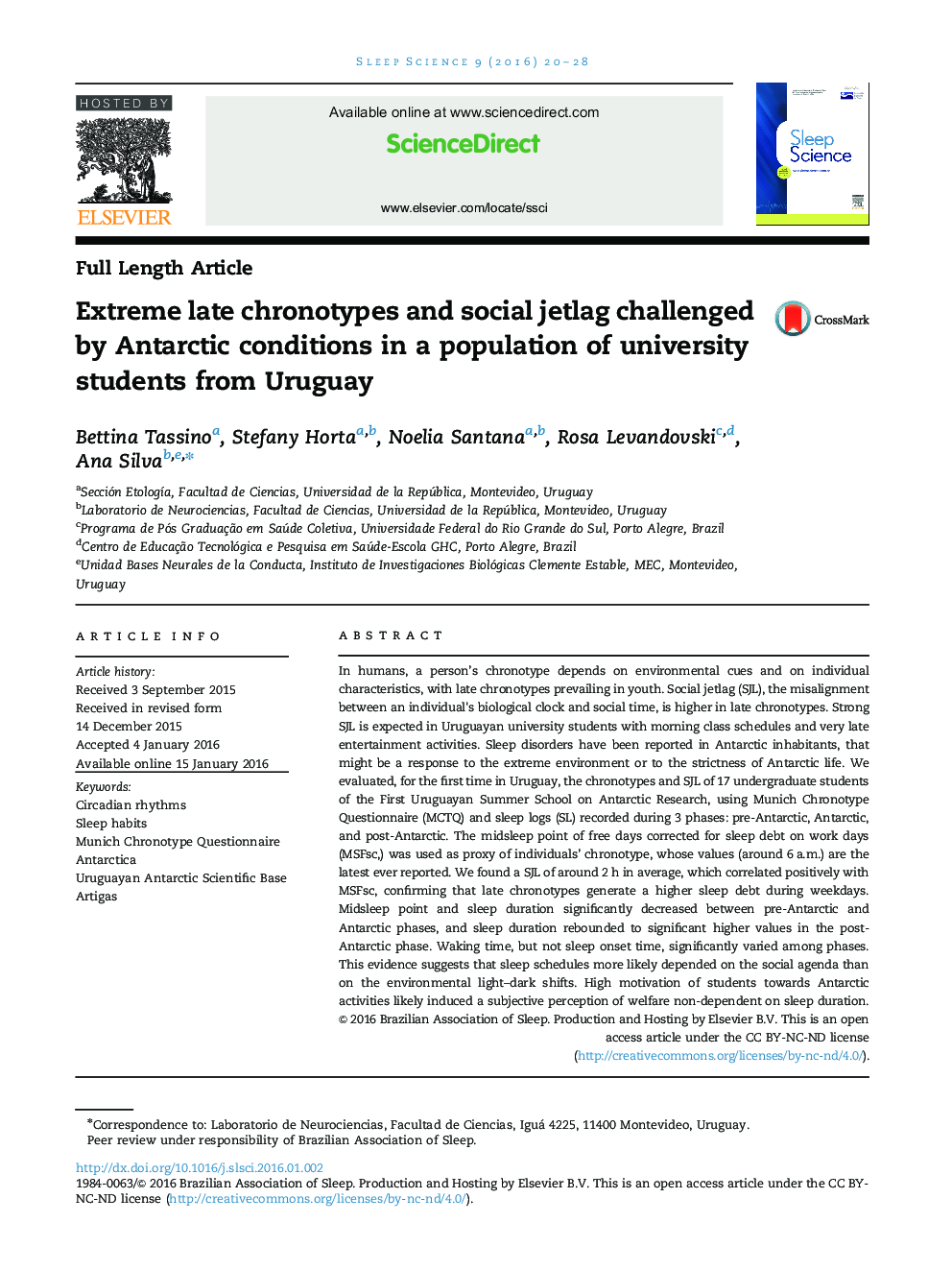| کد مقاله | کد نشریه | سال انتشار | مقاله انگلیسی | نسخه تمام متن |
|---|---|---|---|---|
| 3026644 | 1182915 | 2016 | 9 صفحه PDF | دانلود رایگان |
In humans, a person’s chronotype depends on environmental cues and on individual characteristics, with late chronotypes prevailing in youth. Social jetlag (SJL), the misalignment between an individual׳s biological clock and social time, is higher in late chronotypes. Strong SJL is expected in Uruguayan university students with morning class schedules and very late entertainment activities. Sleep disorders have been reported in Antarctic inhabitants, that might be a response to the extreme environment or to the strictness of Antarctic life. We evaluated, for the first time in Uruguay, the chronotypes and SJL of 17 undergraduate students of the First Uruguayan Summer School on Antarctic Research, using Munich Chronotype Questionnaire (MCTQ) and sleep logs (SL) recorded during 3 phases: pre-Antarctic, Antarctic, and post-Antarctic. The midsleep point of free days corrected for sleep debt on work days (MSFsc,) was used as proxy of individuals’ chronotype, whose values (around 6 a.m.) are the latest ever reported. We found a SJL of around 2 h in average, which correlated positively with MSFsc, confirming that late chronotypes generate a higher sleep debt during weekdays. Midsleep point and sleep duration significantly decreased between pre-Antarctic and Antarctic phases, and sleep duration rebounded to significant higher values in the post-Antarctic phase. Waking time, but not sleep onset time, significantly varied among phases. This evidence suggests that sleep schedules more likely depended on the social agenda than on the environmental light–dark shifts. High motivation of students towards Antarctic activities likely induced a subjective perception of welfare non-dependent on sleep duration.
Journal: Sleep Science - Volume 9, Issue 1, January–March 2016, Pages 20–28
